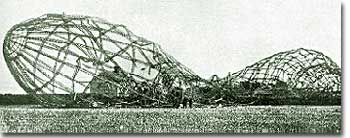
45. America in the First World War

"In Flanders fields the poppies blow/ Between the crosses, row on row..." -John McCrae memorialized his comrades who died in the Battle of Ypres in this most famous poem of World War I.
Isolation was a long American tradition. Since the days of George Washington, Americans struggled to remain protected by the mighty oceans on its border. When European conflicts erupted, as they frequently did, many in the United States claimed exceptionalism. America was different. Why get involved in Europe's self-destruction? When the Archduke of Austria-Hungary was killed in cold blood, igniting the most destructive war in human history, the initial reaction in the United States was the expected will for neutrality. As a nation of immigrants, The United States would have difficulty picking a side. Despite the obvious ties to Britain based on history and language, there were many United States citizens who claimed Germany and Austria-Hungary as their parent lands. Support of either the Allies or the Central Powers might prove divisive.
In the early days of the war, as Britain and France struggled against Germany, American leaders decided it was in the national interest to continue trade with all sides as before. A neutral nation cannot impose an embargo on one side and continue trade with the other and retain its neutral status. In addition, United States merchants and manufacturers feared that a boycott would cripple the American economy. Great Britain, with its powerful navy, had different ideas. A major part of the British strategy was to impose a blockade on Germany. American trade with the Central Powers simply could not be permitted. The results of the blockade were astonishing. Trade with England and France more than tripled between 1914 and 1916, while trade with Germany was cut by over ninety percent. It was this situation that prompted submarine warfare by the Germans against Americans at sea. After two and a half years of isolationism, America entered the Great War.

The contributions of the United States military to the Allied effort were decisive. Since the Russians decided to quit the war, the Germans were able to move many of their troops from the eastern front to the stalemate in the West. The seemingly infinite supply of fresh American soldiers countered this potential advantage and was demoralizing to the Germans. American soldiers entered the bloody trenches and by November 1918, the war was over. Contributions to the war effort were not confined to the battlefield. The entire American economy was mobilized to win the war. From planting extra vegetables to keeping the furnace turned off, American civilians provided extra food and fuel to the war effort. The United States government engaged in a massive propaganda campaign to raise troops and money. Where dissent was apparent, it was stifled, prompting many to question whether American civil liberties were in jeopardy. In the end, the war was won, but the peace was lost. The Treaty of Versailles as presented by President Wilson was rejected by the Senate. Two dangerous decades of political isolationism followed, only to end in an ever more cataclysmic war.





